Delivery 19 $ / Free from 208 $ of purchase
Both types of writing are possible, with Simone and Georges we chose the version with a "Y" at the end, we just find it more fun.
Pronounce /kikɔj/ and not /kikwa/
(yes we looked for the translation in the phonetic alphabet)
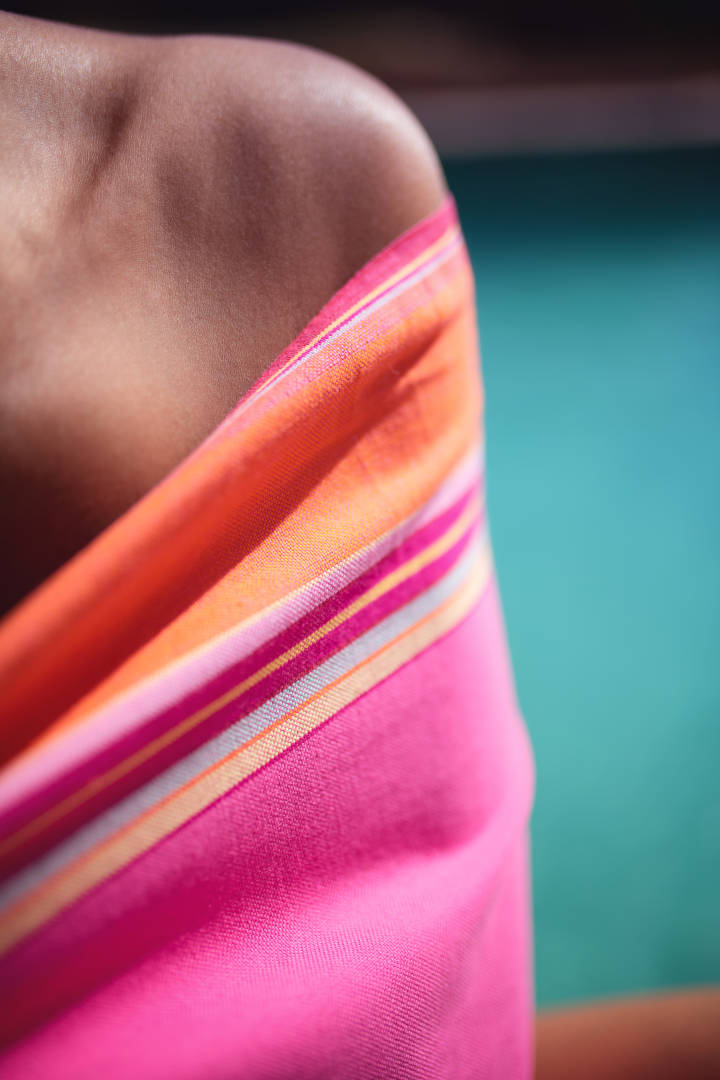
Kikoy is a Swahili word meaning “loincloth”. Originally, it was a traditional pareo exclusively made and worn by men from the East African coast. It existed long before Simone and Georges had their first teeth!
Small point of culture G: The Swahili culture is the fruit of an encounter between African, Arab and Persian influences. It brings together the different countries of the East Coast of Africa.
Simone and Georges first discovered the Kikoy in Tanzania, and today they have it made in Kenya near Nairobi.

One of the special features of our Kikoy is its quality. At each stage of its manufacture we choose the best to offer you a fabric that is the lightest, softest and the most durable at the same time.
Cotton is the vegetable fiber that surrounds the seeds of cotton plants. But not all cottons are created equal. For better quality, cotton must be selected, fibers are the longest, the whitest, and cleanest possible.
To switch from raw cotton fiber to silky cotton thread, you must first separate the fibers from each other, this is the carding operation. But if you want a higher quality cotton yarn you have to add an additional operation: combing, which consists in removing the shortest fibers. At Simone and Georges our Kikoy is in combed cotton, this is one of the important differences from other standard fabrics.
After spinning, we must not forget the dye, otherwise the designs of our Kikoys would be very sad. But the more you want to have sparkling colored threads the more you have to be careful to have wide-dyed dyes, so that your fabrics do not pass into the sun and do not wash in the machine. Our Kikoys are renowned for keeping their color for a very long time. Georges's is already 12 years old and he is still as young (the Kikoy, not Georges ).
The quality of a fabric does not only depend on the thread you use. It also depends on the weaving you choose.
On the one hand you have to look at the number of threads per cm2 and the grammage. Our Kikoy is woven with 44 threads per cm2 for a grammage of 160g / m2. In other words, it is dense enough to be seen through, it is very durable, while remaining silky and light.
On the other hand you have to look at the finesse of the designs. Some fabrics have only one or two colors in their warp and weft. We are a little bored in these cases. At Simone and Georges we can change the color of each warp and weft thread, look at the design at the top of this page for example. We pay particular attention to all the colors we choose on the borders of our Kikoys, it makes all the difference you will see.
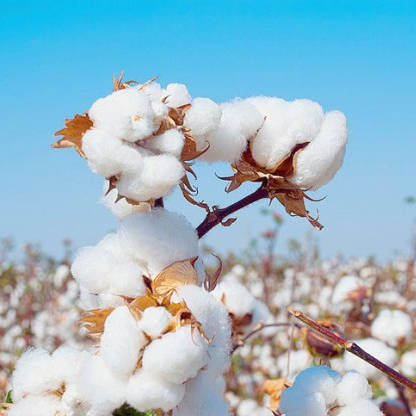
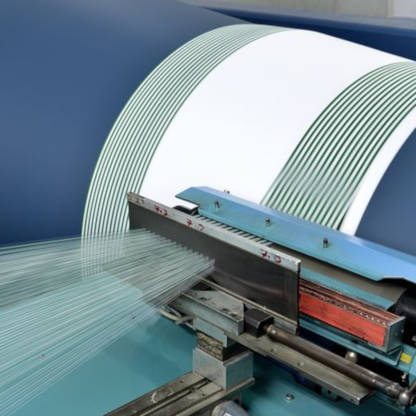
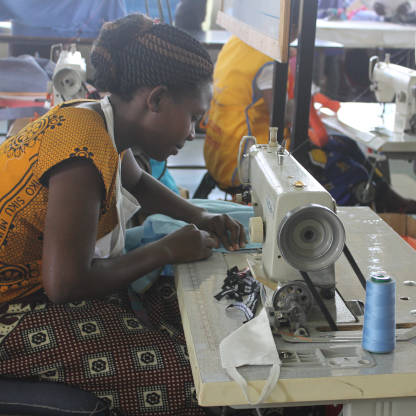
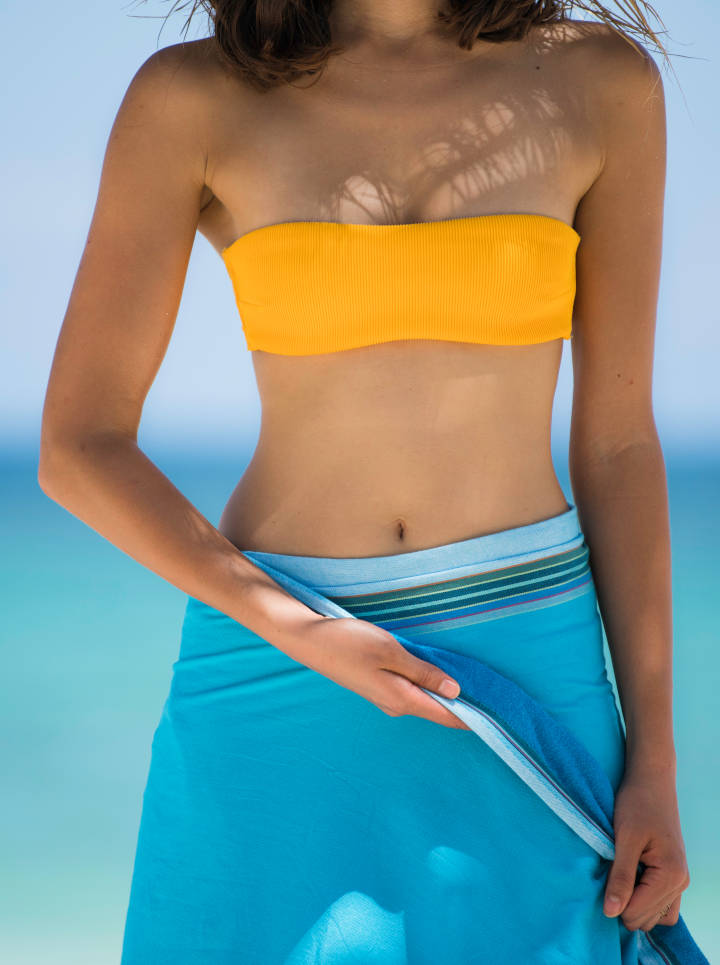
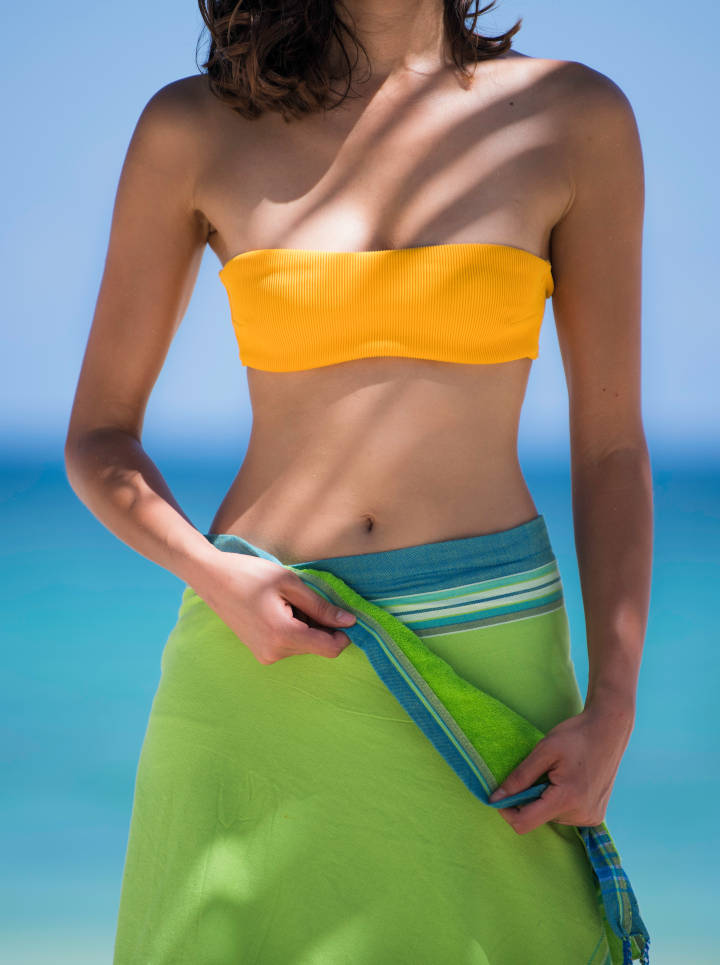
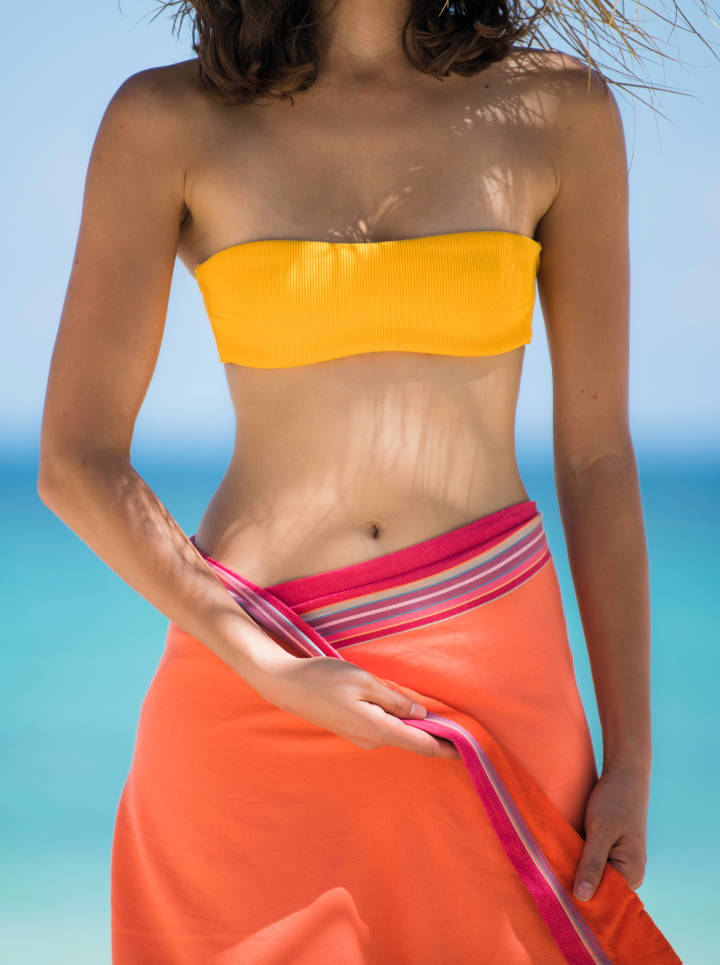
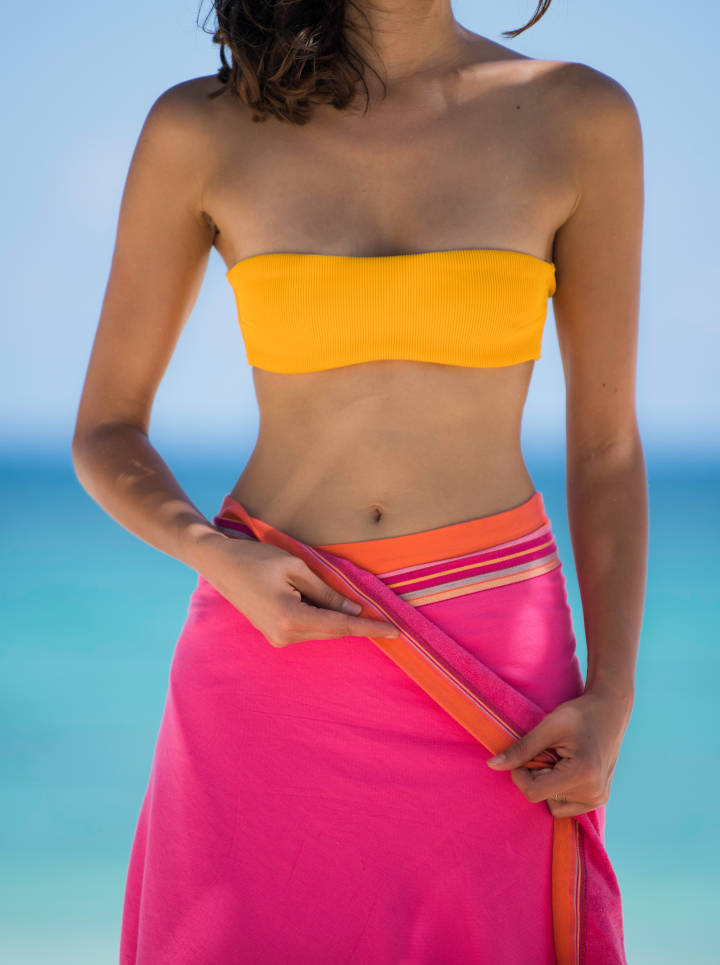
If we make a pareo with Kikoy we get a Kikoy-Pareo, and it's already very beautiful. But what is even more magical is the Kikoy-Towel, and for that we just have to double our Kikoy-Paréo with a very thin terry towel.
Free from 208 $ of purchase
Refund upon receipt



For the whole family